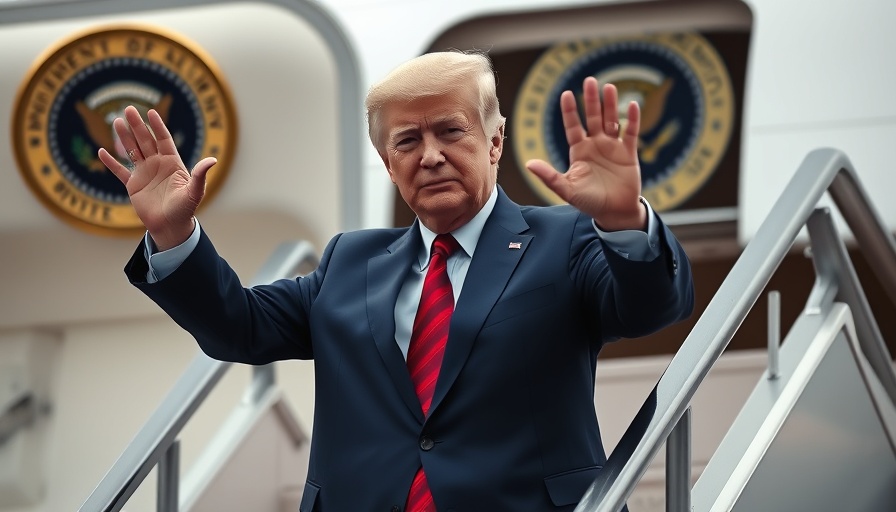
Trump's Sudden Departure: What It Means for International Relations
U.S. President Donald Trump's early exit from the G7 summit in Kananaskis, Alberta, was spurred by escalating tensions in the Middle East, highlighting the interconnectedness of global politics. His departure underscores the continual balancing act leaders must perform amid international crises.
Context Behind the Decision
On June 16, 2025, Trump left the G7 summit, citing urgent developments in the Middle East, specifically the Iranian capital of Tehran. His own social media comments illustrated his concern, calling for the immediate evacuation of Tehran and insisting that Iran must curb its nuclear ambitions. The President's quick decision reflects not only a personal urgency but a broader policy stance on managing threats to national and international security.
Historical Context: G7's Role and Influence
The G7 has always represented a platform for leaders of the world's largest economies to collaborate on policy, security, and humanitarian issues. Established in the 1970s during economic upheaval, the G7's role has evolved into that of a crucial player in navigating geopolitical conflicts. Trump's departure may mark a significant moment that prompts member states to reconsider their strategies toward international crises and cooperation.
Reactions from Allies: Navigating a Complex Landscape
White House Press Secretary Karoline Leavitt mentioned Trump had a successful day at the summit before abruptly announcing his departure, claiming he had engaged well with fellow leaders. However, this incident has invoked mixed reactions among U.S. allies, some of whom stress the importance of solidarity in addressing global security challenges. Questions arise on how effectively such crises can be managed without collaborative efforts among G7 members.
Future Predictions: What Lies Ahead for G7?
As the world transitions into a more multipolar power structure, the implications of unilateral actions, such as Trump's early exit from the summit, prompt concerns over the stability of international agreements. Speculations abound on how this incident might affect future G7 gatherings and what responsibilities the leaders will bear in responding to unpredictable global challenges.
Implications for U.S. Domestic Politics
Domestically, Trump's quick decision could be perceived variously by his supporter base and critics alike. As the country prepares for future elections, Trump's foreign policy approach may heavily influence public perception of his leadership capabilities. The intersection of international crises and local political narratives parses out complex sentiment among constituents.
Learning from This Episodes: Reassessing Global Strategies
This incident raises important questions about how global leaders can proceed in managing international affairs. Engaging in discussions about crisis diplomacy, developing rapid response frameworks, and bolstering international alliances are all vital lessons from this scenario.
Conclusion
Donald Trump’s early departure from the G7 summit exemplifies how swiftly international events can unfold and impact diplomatic processes upwards of 30 years after its inception. As the situation continues to develop in the Middle East, leaders must navigate these waters with astuteness and an eye towards collaborative diplomacy to forge paths toward peace and security.
 Add Row
Add Row  Add
Add 




 Add Row
Add Row  Add
Add 

Write A Comment